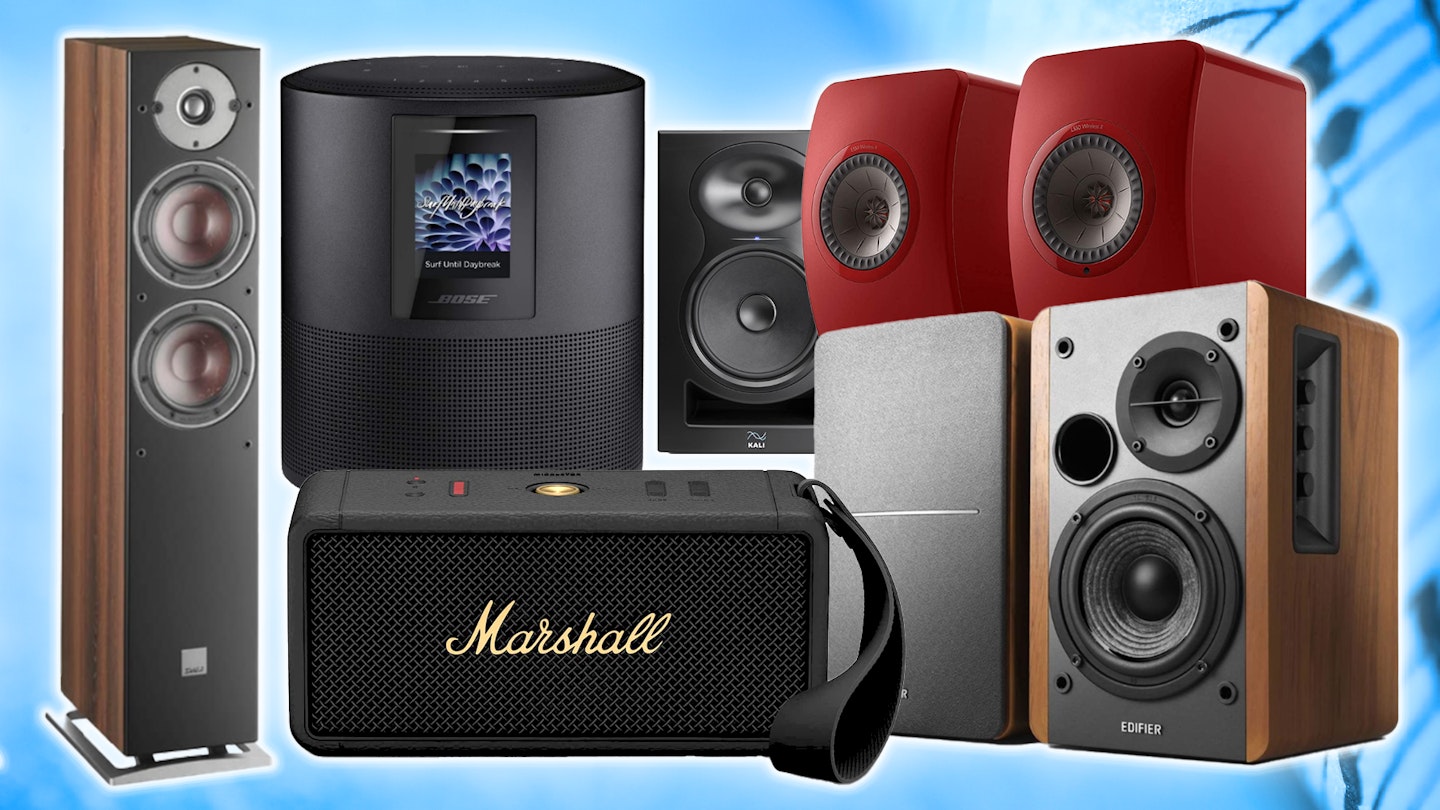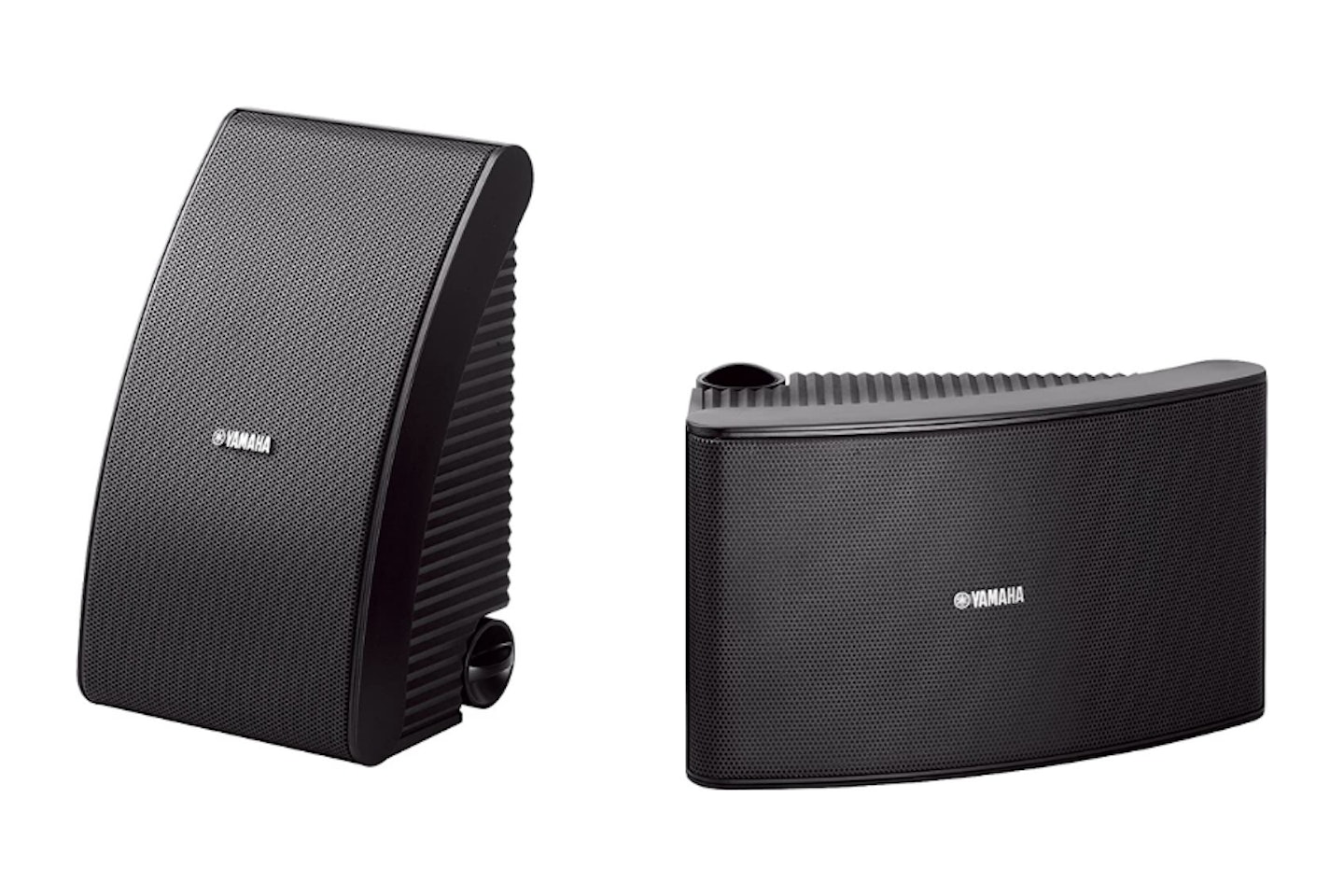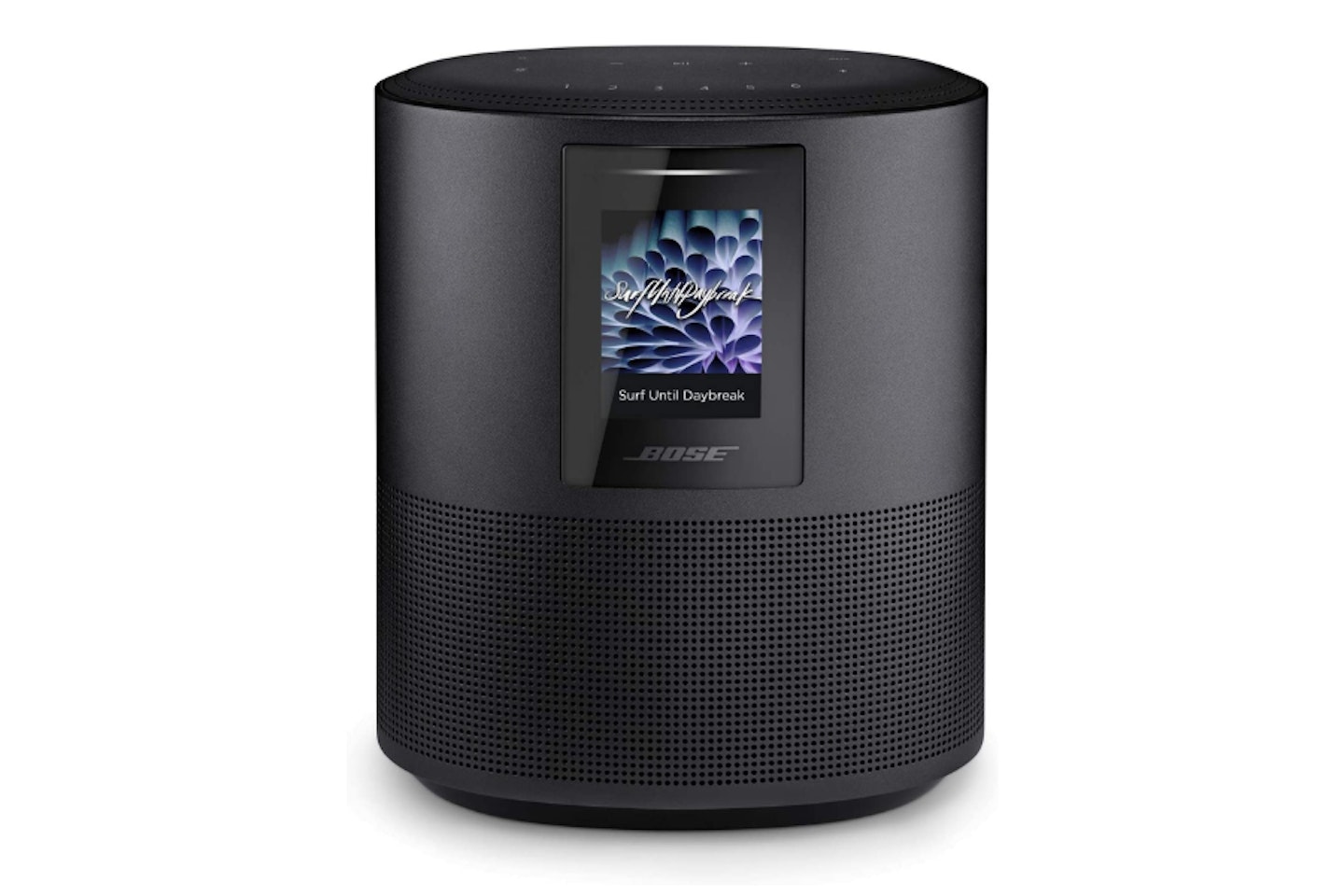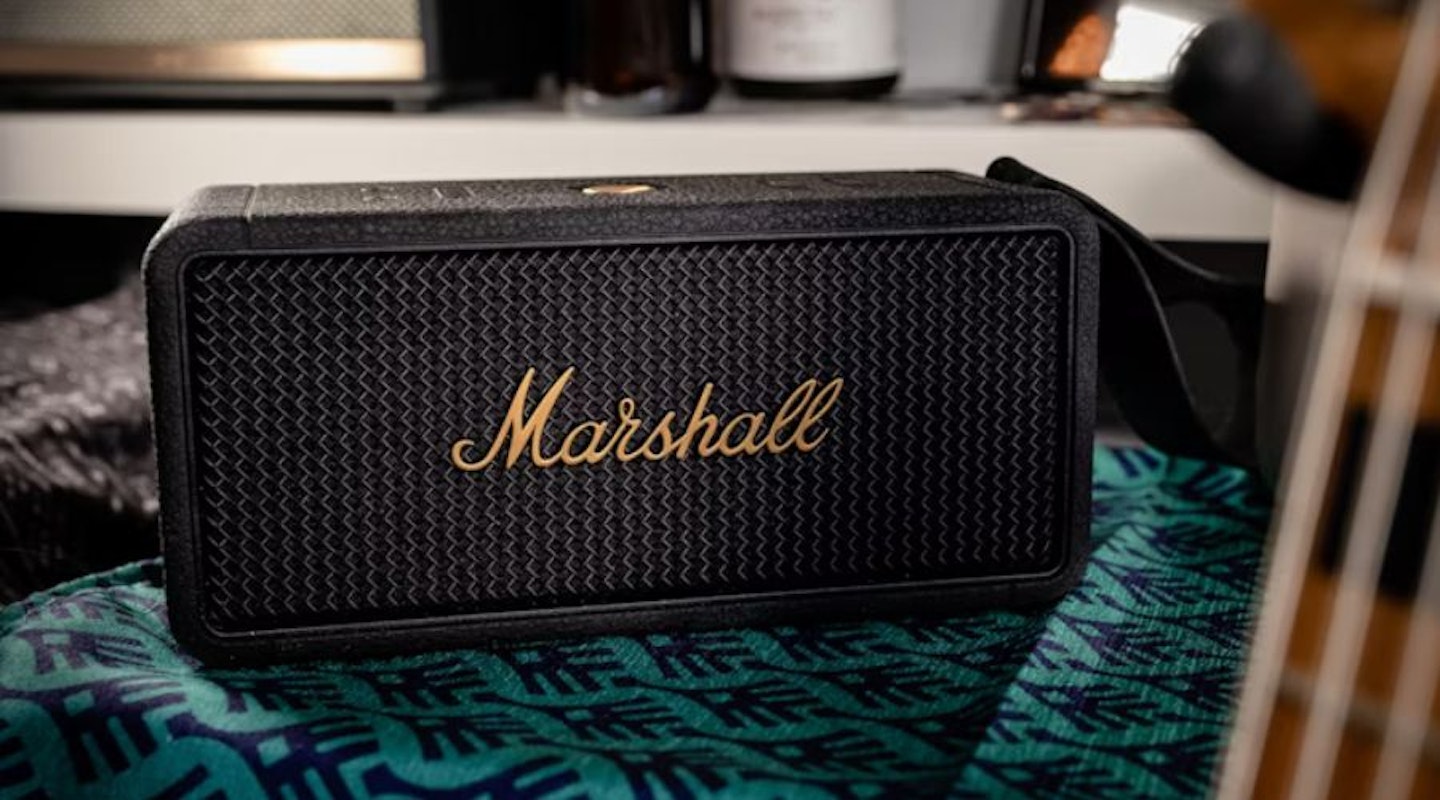Most music lovers will admit that today's best budget speakers for music would outstrip the ones you grew up listening to. But we listened anyway and discovered the songs that would become the soundtrack to our lives. But now, thanks to some of the best speakers on the market, there's no excuse for putting up with tinny mids and thin bass. Muddy Waters doesn't have to sound muddied; the Stereophonics can live up to their name, and any tin will be outlawed from your heavy metal collection.
While what makes a good speaker varies from ear to ear, there are some things you can gather from the spec sheet, such as whether it's a Bluetooth speaker, has multiroom capabilities, what size the cones are, and so on. But this is no small task. With so many speakers on the market at so many price levels, it's easy to get lost in the data and wild promises. But you won't be lost for long – our experts have found some of the best speakers for music on the planet.
Best speakers for music in 2024 at a glance:
• Best overall: DALI Spektor 2 Bookshelf Speaker – View at Amazon
• Best budget: Edifier R1280T Active Bookshelf Speakers – View at Amazon
• Best portable: Marshall Middleton Bluetooth Wireless Portable Speaker – View at John Lewis
• Best floor-standing: DALI Oberon 9 Floorstanding Speakers – View at Peter Tyson
We've grouped our pick of the best music speakers into two categories. First, we've looked at different sizes. Whatever you choose, you'll need to be able to fit it into the available space. Second, and perhaps most importantly, is how well-matched the speaker is to the type of music you listen to.
Some speakers, most notably Marshall, are known for better suiting rock and metal than other genres. At the same time, brands like Bose have a dedicated following from classical music fans due to their delicate frequency response. We've included examples from those speaker brands, too. So pull your favourite LPs from the shelf and your best CDs from the rack. The best speakers for music are on their way.
Best speakers for music in 2024
All prices are correct at the time of writing. Prices, stock and deals are subject to change without notice.
Though these DALI Spektor 2 speakers may be compact, they boast enough bass to fill a medium-sized room. The larger diaphragm of the 130mm bass/mid driver and the 25mm dome tweeter work together to create a soundstage of sheer beauty.
Many bookshelf speakers create their own audio distortion by colliding harmonics. Sound becomes muddied with poor separation with cones and domes closer together in speakers of this size - but not here. The spacious sound in these Spektor 2s overcomes this by design. They not only avoid the cause of distortion in how they're built, but DALI also recommends that its speakers not be angled inward towards the listener – another common cause of clashing harmonics. As they sit squarely placed on the shelf or against the wall, they'll look neat, too.
As you'd imagine, an authentic musical experience is at the heart of the Spektor 2s, with more than enough power and finesse to deliver it.
Pros
- Enjoy legendary sound from an equally legendary brand
- Excellent room-filling bass and mids from relatively compact cabinets – they'll fit almost anywhere
- The inclusion of wall brackets is very welcome, giving more installation options
Cons
- They may need 'running in' for 100 hours to sound their best
| Speakers | 130 mm bass/midrange driver and 25 mm dome tweeter |
| Impedance | 6 Ohms |
| Frequency range | 54 - 26,000 Hz |
| Power | 100w .84.5dB |
| Weight | 8.4kg |
| Dimensions | 292 x 170 x 238 mm |
| Extra features | N/A |
The Edifier R1280T could very well have taken our spot for best bookshelf speakers for music, but the incredible price is what's placed it here. So, what do you get for less than £100? There's some gutsy audio performance for such a compact pair of speakers. The volume is more than decent, with some pleasing sonic details. A 4-inch bass driver and 0.5-inch tweeter deliver the goods. The tone can be manually adjusted using the treble and bass EQ controls that are thoughtfully placed on the side rather than the back.
Being active speakers, they don't require an external amplifier and have Bluetooth for extra convenience. These Edifier R1280T speakers offer additional flexibility and plenty of connections at the back. Plus, the bookshelf size makes for easy placement, so you can enjoy your music in true stereo wherever you need it.
Pros
- The very well-engineered active speakers are ideal for those without a separate amp
- Excellent bass yet understated sophisticated looks is a pleasing combination
- The side panel with manual control knobs maintain usability and uncluttered looks
Cons
- The included cables are a little cheap
| Speakers | 4" (100mm) cone woofer, 0.5" (13mm) dome tweeter. 85dB. 75Hz-18kHz. 8 Ohms |
| Connections | WiFi, Bluetooth, Sub-out, Dual RCA, Optical, Coaxial |
| Wall mountable | Not specified |
| Power | 21W+21W RMS |
| Weight | 4.9kg |
| Dimensions | 234 x 146 x 196 mm |
| Extra features | Wifi |
It should be no surprise that Marshall has made it to our list. As a brand that's so iconic, it had a lot to live up to with its range of audio products – and this one absolutely does. In our review of the Marshall Middleton, we found it to be, as the company claims, one of the heaviest and loudest Bluetooth speakers out there. All that power and style in something that can be (just about) lifted one-handed? Yes. Inside the beautifully detailed yet robust case lies two 3-inch 15W woofers, two 3/5-inch 10W tweeters, and a couple of passive radiators.
There's an IP67 rating for water and dust resistance and the all-important battery life of around 20 hours – so it ticks the portable box. But you'll splash your cash on this mighty yet mini Marshall because of the sound. It will eat rock and roll for breakfast and still have more power left over. Stunning.
"An epic speaker – no doubt about it." Tried and tested by William Lobley, What's The Best Editor
Pros
- Marshall has perfected containing an expansive sound inside a small yet attractive casing
- A combination of a robust build and solid battery life makes it very portable
- The timeless Marshall design is here in full force - a touch of classic amp styling
Cons
- A little too heavy to be super-portable
| Speakers | 2x 3” 15W woofers, 2x 3/5” 10W tweeters, 2x passive radiators |
| Connections | Bluetooth 5.1, Aux-in |
| Charge | USB-C |
| Battery | 20+ hours |
| Weight | 1.8kg |
| Dimensions | 109 x 230 x 95 mm |
| Extra features | IP67, Available in Black and Brass, Cream, Two 20 Watt Class D amplifiers for the woofers, Two 10 Watt Class D amplifiers for the tweeters |
Best floor-standing speakers
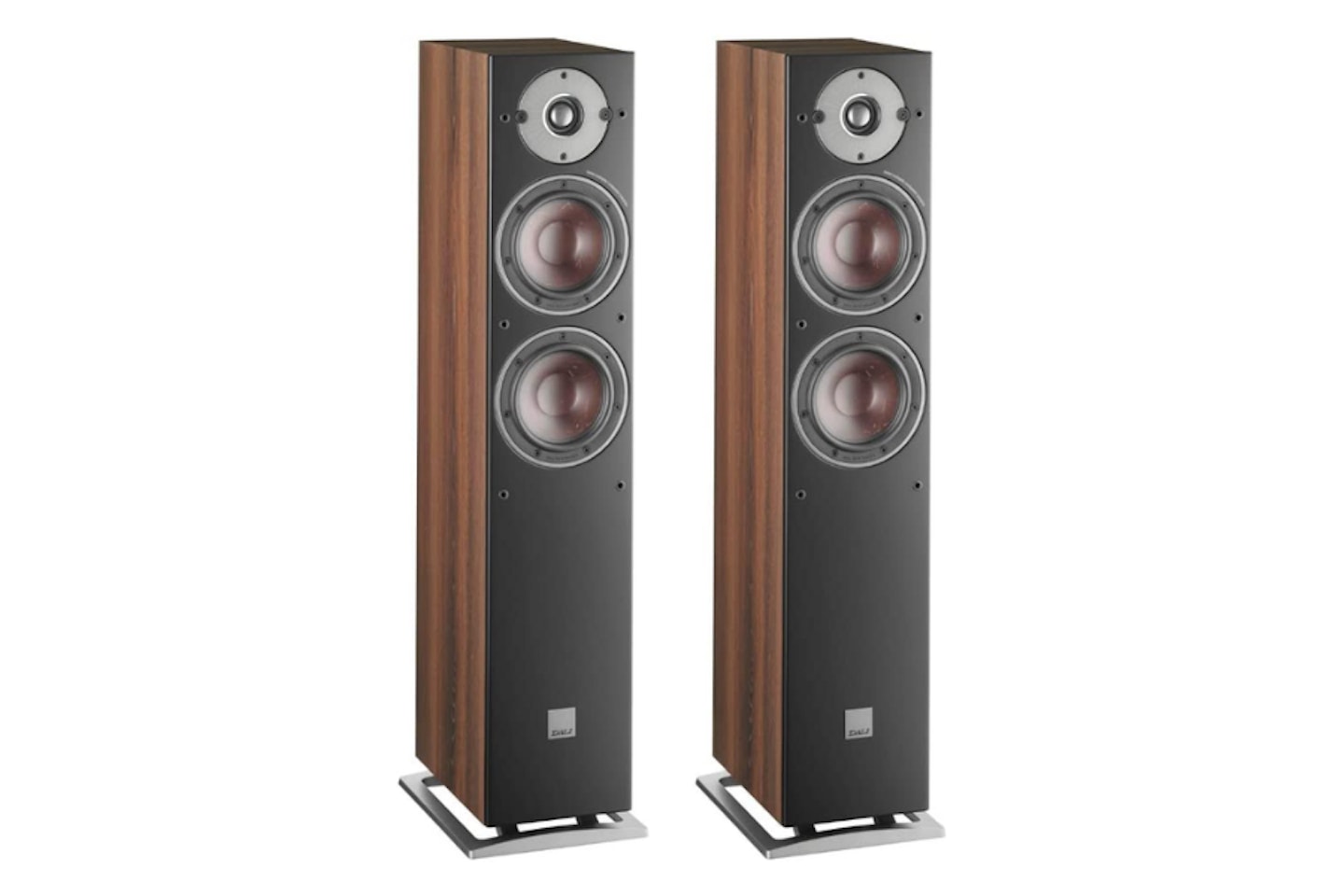
petertyson.co.uk
We've looked at prime examples of floor-standing speakers before, but the Oberon 9 speakers from DALI are fast emerging as a popular floor-standing set for multiple uses. The DALI brand is a favourite among audiophiles and casual listeners, becoming synonymous with exciting yet refined looks. What you'll find here is astonishing power and excellent clarity. Rated at 400 watts, these have enough punch for astonishing room-filling hi-fi.
A deep, resonant bass is in balance with well-integrated mids. This is down, in part, to the drivers in the Oberon 9. They're engineered for less harmonic distortion, plus a wide sound field. With that comes even more freedom when it comes to placement in your room. Power, refinement and contemporary design – they're all here.
Pros
- Unrivalled sophisticated yet modern look houses a deep and powerful bass
- Room-filling volume with less harmonic distortion than other floorstanders
- A choice of Black Ash, Light Oak, Dark Walnut and White means they'll fit with your decor
Cons
- These require a bit more space to fully appreciate the sound on offer
| Speakers | Bass / Midrange 2 x 228.6 mm. Tweeter 1 x 29 mm ultra-light soft dome |
| Impedance | 4 Ohms |
| Frequency range | 35 - 26.000 |
| Power | 400w. 113dB |
| Weight | 37.1kg |
| Dimensions | 1172 x 260 x 406 mm |
| Extra features | Patented SMC disc that greatly reduces mechanical distortion |
Best bookshelf speakers
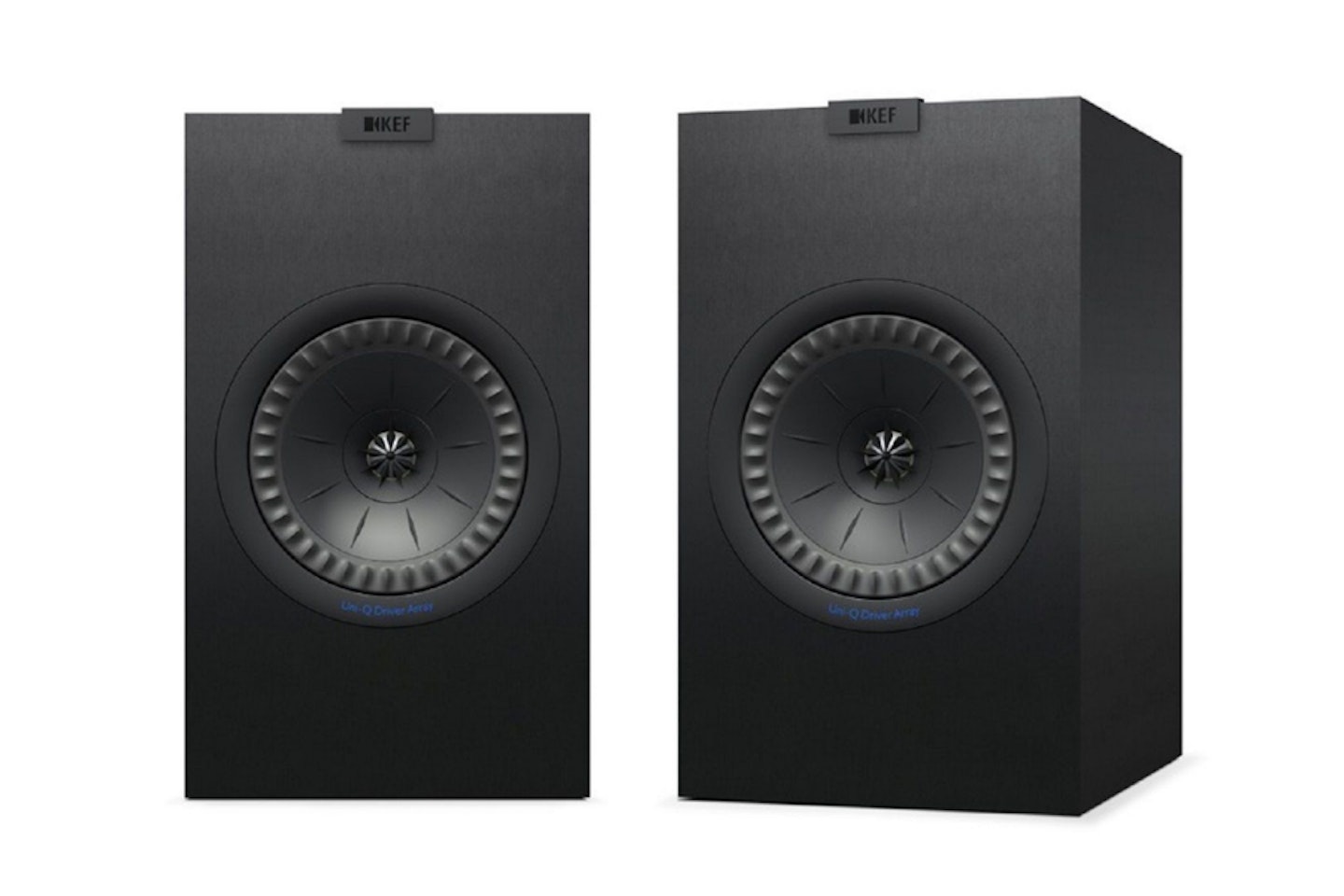
www.av.com
We featured the KEF Q150s in our guide to the best bookshelf speakers, but these are another step up from KEF's masters of audio. The Q350 speakers utilise Uni-Q design technology, which places the treble unit in the centre of the woofer. The result is a broad, unified sound field exceptionally well suited to stereo listening.
KEF has borrowed much from its premium speakers here, particularly the Z-Flex woofer. This creates a well-defined and detailed sound. Design-wise, these are a winner, too. KEF has avoided unnecessarily fussy details and offers sleek refinement instead. Your music will sound nothing less than fantastic.
Read our full KEF Q350 review.
Pros
- The sleek and refined KEF design will suit all music rooms
- The KEF audio know-how and build quality is evident
- The right size for most spaces and rooms – making these a flexible choice
Cons
- If you want to fill a bigger room with sound, go larger
| Speakers | 165mm (6.5in.) aluminium Uni-Q<br>25mm (1in.) vented aluminium dome HF |
| Impedance | 8 ohms |
| Frequency range | 63 - 28,000 |
| Power | 120w 87db |
| Weight | 7.6kg |
| Dimensions | 210 x 358 x 306 mm |
| Extra features | Optional full-length magnetic grilles |
Best for bass
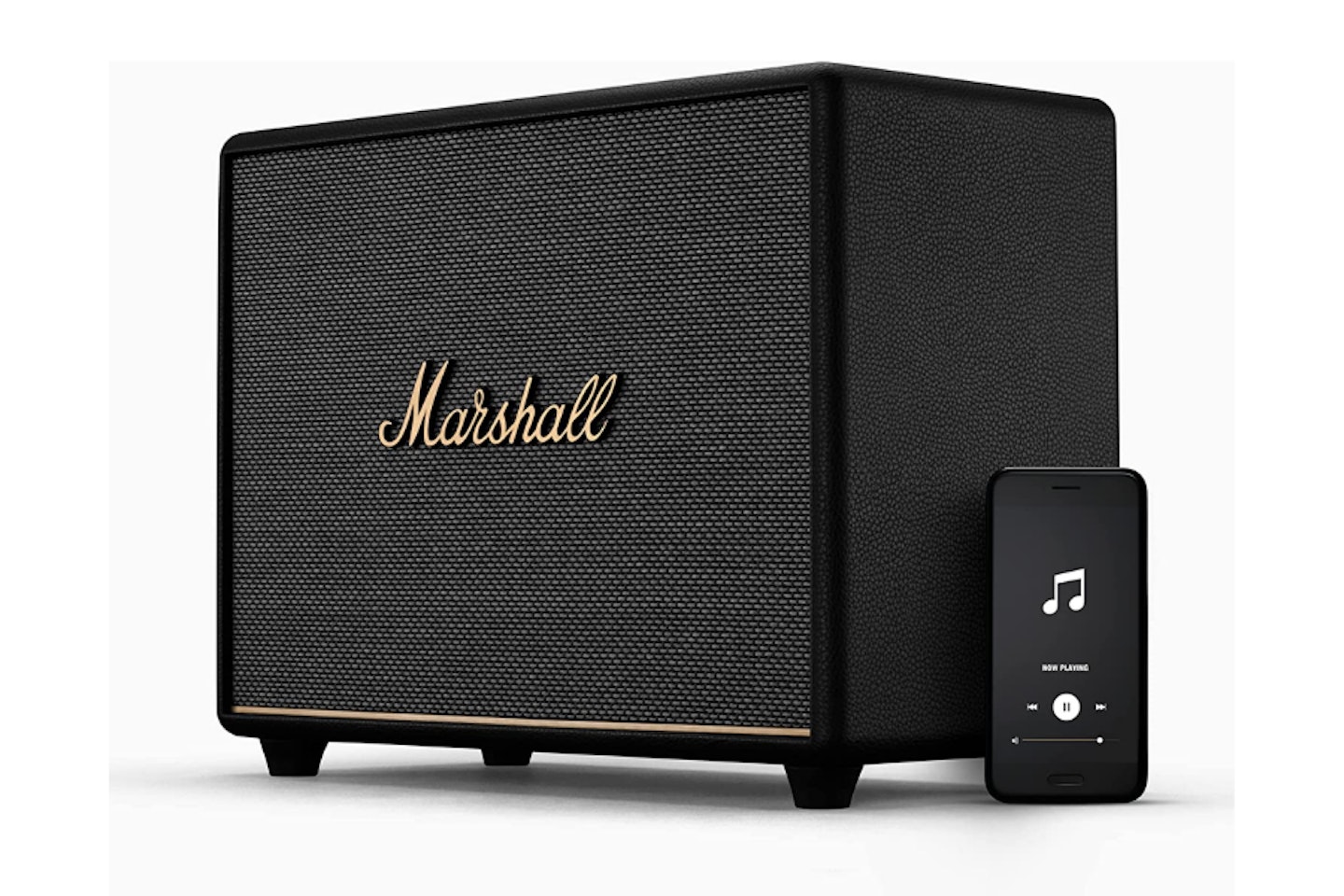
www.johnlewis.com
Here, we have the Marshall signature sound – loud, immersive, and full of mid-range. During our in-depth review of the Marshall Woburn III, we found it fulfilled its iconic reputation as the go-to speaker brand for rock, metal and any music with plenty of low-end grunts.
The soundstage is vast. You won't be left wanting more volume, either. Connecting your phone or tablet to this rock monster is a breeze via Bluetooth. And when you're done rattling the foundations, you could even hook it up to your TV thanks to the HDMI ARC input. This beast of a standalone wireless speaker projects very well and does justice to all types of music you feed it. And, of course, the style and build quality are unsurpassed.
"Downsides? No carrying handle means you can't take it everywhere with you (and you'll want to) while its slightly awkward shape means you'll need a lot of space on your TV unit to make use of the HDMI Arc connectivity. And again, this is a really great function that expands the breadth of its abilities." Tried and tested by Adam Binnie
Pros
- Marshall has engineered these for faithful audio quality inside a hugely attractive cabinet
- Works at high and low volume in terms of soundstage and balance
- Tons of bass for the size
Cons
- No guitar input – so the amp similarity ends there
| Speakers | Stereo bass reflex |
| Impedance | N/A |
| Frequency range | 35–20,000 Hz |
| Power | 150w. 100.5 dB @ 1m |
| Weight | 7.45kg |
| Dimensions | 400 x 317 x 203 mm |
| Extra features | Bluetooth, Adjustable bass and treble control |
The PreSonus Eris 5BT Gen 2 studio monitors offer accurate sound reproduction, a versatile design for various setups, and user-friendly features, making them ideal for music producers and video editors.
These monitors feature woven-glass woofers and silk-dome tweeters that provide smooth sound. They ensure accurate sound production with a frequency range of 53Hz to 22kHz. The compact design and customisable high and low acoustic tuning deliver powerful, personalised bass – perfect for limited spaces.
Additionally, the monitors come with the PreSonus Studio Magic software suite, which includes a range of processors, synths, and samples to enhance creativity.
Pros
- If you want professional-grade sound balance and precision – this is it
- Versatile connectivity options for easy integration
- Compact, aesthetically pleasing build
Cons
- Somewhat lacking in low midrange frequencies, but adjustable with onboard EQ
| Speakers | 6.5-Inch Optimized Paper, 1-Inch Textile Dome |
| Impedance | Unknown |
| Frequency range | 47 Hz - 21 kHz |
| Power | 80w |
| Weight | 7.05kg |
| Dimensions | 222 x 260 x 362 mm |
| Extra features | Input gain adjustments |
Best outdoor speakers
These Yamaha All-Weather NSAW592 speakers have recently been featured in our expert's choices for some of the best outdoor and garden speakers. These hardy Yamahas really showcase the brand's design and acoustic know-how. Perfectly formed for mounting discretely into corners and nooks outside, they'll project 88dB of your chosen music through their dedicated woofers and coated tweeters.
The NSAW592 casing is treated to withstand all weather types, plus the subs are waterproof. So, the whole speaker will keep its high-quality finish, and internal components will withstand even the worst British weather. If you want to deliver high-fidelity audio with a satisfying amount of bass to your outdoor spaces, this is it.
Pros
- Legendary Yamaha design and build will keep these looking good in the outdoors for longer
- The waterproofing doesn't affect what is an extremely satisfying sound
- The low-profile cabinets won't dominate your outdoor spaces
Cons
- Bass addicts may want more (but will the neighbours?)
| Speakers: | 16cm waterproof cone. Tweeter. 2.5cm fluid-cooled, coated soft dome |
| Impedance: | 6 Ohm |
| Frequency range: | 55 Hz–20 kHz |
| Power: | 150w |
| Weight: | 6.5kg |
| Dimensions: | 206 x 340 x 170 mm |
| Extra features: | Angled case design, Waterproof |
- Customer review: "I have owned these magnificent speakers for a few days and put simply they are incredible beautiful clear sound I would recommend these speakers to everyone and for the price they are truly amazing, I have them being driven by a Yamaha RX-V685 zoned amp and its brilliant sound."
Best smart speaker
With the Home Speaker 500 from Bose, what you're paying for is that legendary wall-to-wall Bose sound. That said, the built-in screen is a real bonus too. It'll display artwork and essential info. It also visually sets it apart from most other smart speakers on the market. And while we're looking at smart integrations, the voice pickup is excellent, thanks to eight microphones. If you want to ditch the voice control, there are six one-touch preset buttons on the top, so manual control is excellent, too.
Spotify Connect integration makes playback through the Bose Home Speaker 500 easy, and Amazon Music is also supported. Multiroom listening is also at the heart of this speaker – it's part of the Bose Smart Family. Compatible products like the Bose Soundlink Flex featured here can be paired easily.
The beautiful black aluminium case (opt for it in silver and benefit from a significant discount) also houses Airplay 2 for your Apple devices, plus, of course, the convenience of Alexa. If you want premium audio, you've found it.
Pros
- You can expect that Bose best-in-class stereo sound
- Colour screen is excellent for album artwork – a nice addition over some other speakers
- Works with Bose SimpleSync for easy multiroom setup
Cons
- Cannot be paired with Echo devices for multispeaker audio
| Speakers | Two full-range drivers |
| Connections | WiFi, Bluetooth, 3.5mm aux input |
| Power | Not specified |
| Weight | 2.15kg |
| Dimensions | 203 x 170 x 109 mm |
| Extra features | Bose Music App control, Apple Airplay 2, Spotify Connect |
Best high-end
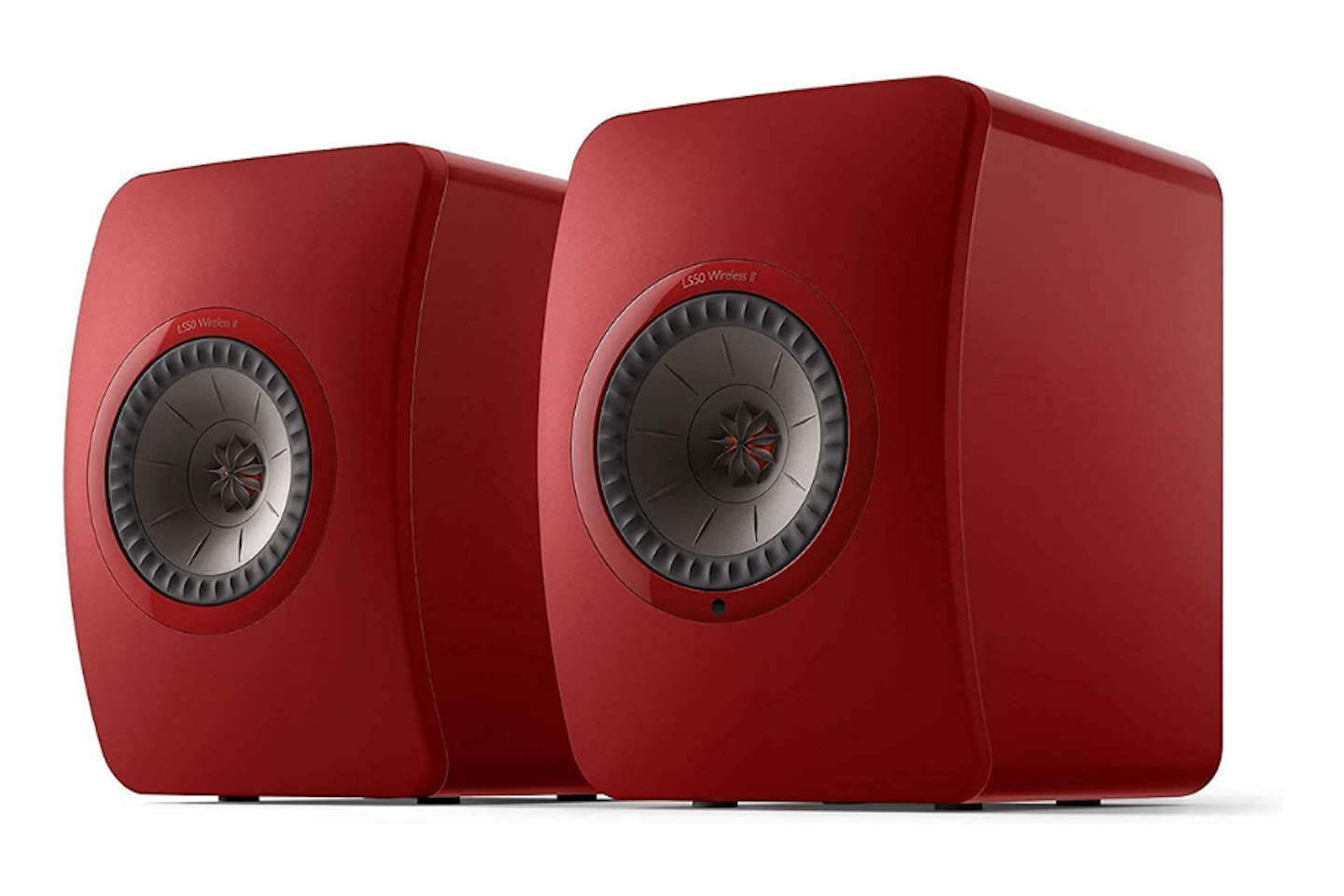
www.smarthomesounds.co.uk
The KEF LS50s stand out for their blend of luxury, style, and performance. Their inclusion in our list of top music speakers is no surprise, given their wireless active stereo system, exquisite design, and signature KEF craftsmanship. However, it's not just about the specifications. The real magic lies in the soundscape and clarity they deliver.
These speakers offer multiroom and streaming connectivity via Bluetooth and are compatible with popular music platforms like Amazon Music, Spotify, and Apple Music. But what truly sets these speakers apart is the KEF audio expertise that makes them a joy to listen to. The uni-Q speaker technology and Metamaterial Absorption Technology work in harmony to eliminate 99% of unwanted noise from the rear of the driver, resulting in a more authentic sound. With a robust 200 watts per speaker, they deliver an awe-inspiring audio experience.
Admittedly, they come with a hefty price tag, but as a premium product designed for audiophiles and those with deep pockets, they are unparalleled.
Pros
- The sound quality is nothing short of incredible with a classy design and build
- The inclusion of wireless and analogue inputs means you have loads of flexibility
- Supports more streaming services than we've ever seen in one unit
Cons
- Very heavy bass lovers may still want a subwoofer
| Speakers | 1x 25mm tweeter, 1x 130mm mid/low; 40Hz – 47kHz range |
| Connections | HDMI eARC/ TOSLINK Optical/ Digital Coaxial/ Analog 3.5mm Auxiliary, Ethernet, WiFi, Bluetooth |
| Subwoofer output | Yes |
| Power | 200w 108dB |
| Weight | 7.2kg |
| Dimensions | 305 x 200 x 311 mm |
| Extra features | Bluetooth, Wifi, LAN, optional floor stands |
How to choose the best music speaker for you
Judge for yourself
Musicality is a nebulous term that many people use to describe how natural or warm a speaker sounds. But, for others, it's how faithfully the speaker will render certain instruments or how defined and separated the frequencies are. Build quality and brand aside, this isn't always about how much money you have to spend. Sometimes, a cheap and cheerful smart speaker can hit that sweet spot that suits the type of music you listen to. Others, perhaps in the audiophile category, would prefer investing in the best speaker technology that money can buy.
There really is no substitute for listening to the hi-fi speakers you're interested in. There are a number of ways to do this. One is buying from a retailer that supports easy returns if unsatisfied. The second is to find a friend or colleague who has the same or similar speakers to listen to. As always, we recommend taking your own music with you to test it.
Match up your speakers with your amp
If you're buying new speakers to go with your amplifier, you'll need to ensure that the specifications match up. An amplifier is rated for output and audio signal at a certain wattage. There's also impedance to take into account. There's more on these terms in our jargon buster below. However, don't be tempted by speakers because you like their look. Check that they're a good match first. It's possible to damage a speaker or the amplifier permanently if you don't.
Bigger isn’t always better
Speaker technology has advanced dramatically in recent years, and with this has come a boost in performance at all sizes. Some of the best smart speakers and bookshelf speakers we've ever seen have sound you'd normally associate with floor-standing units of old. Unless you're going with large floor-standing speakers because they have more drivers inside, such as the outstanding Audio Pro A48 speakers, the chances are you'll do just as well with some excellent bookshelf speakers.
All that glitters is not audio gold
As with most tech, the cover is sometimes better than the story inside. If you find a speaker from a brand you've never heard of that looks very premium, it might be too good to be true. Equally, we recommend avoiding speakers with too much cosmetic bling; that raft of useless chrome plastic detailing and flashy graphics likely hides some substandard cones and drivers.
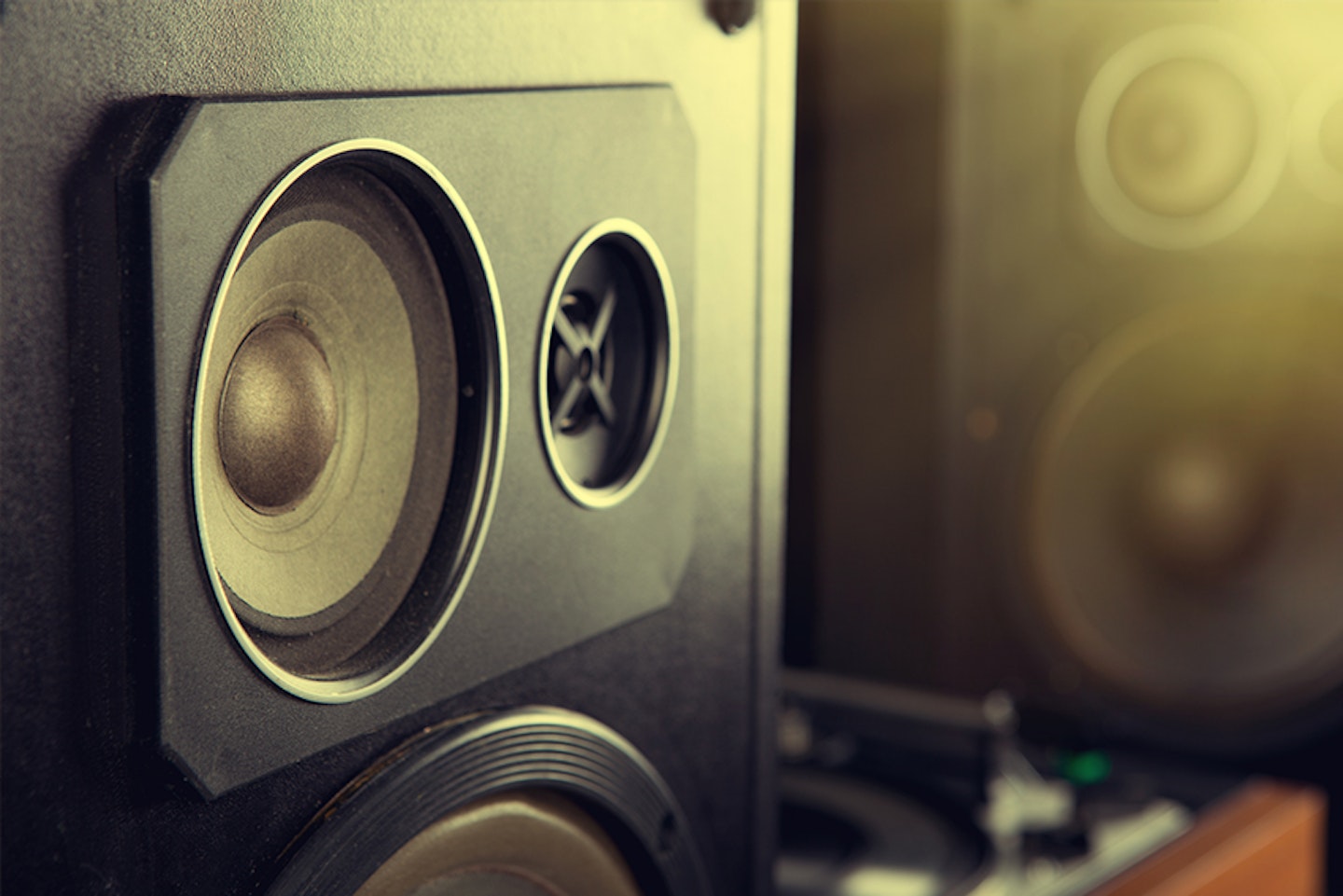
<strong>Speaker FAQs</strong>
How can I improve speaker sound?
Look for speakers that are well-insulated against reverberation. Some speakers will have spike-type feet that stop the floor from absorbing bass, while others have cushioned rubber feet. As you'd imagine, firmly wall-mounting a speaker will massively help to isolate it, and you'll get truer, unadulterated sound reproduction. Also, pairing your speakers with the right amplifier in terms of wattage and impedance will make a massive difference.
Where should I place the best speakers for music?
It goes without saying that anyone who angles their speakers facing a wall or corner at close range will ruin their experience. Placing them behind furniture or having a speaker's bass ports right up to a wall is a no-go. You should also consider where you'll be sitting. Some speakers need to be angled inward towards the listener, while others don't. As always, read your speaker manual.
Secondly, look around your room. Suppose you have a sparsely decorated room without carpets or other things to break up reflections. In that case, your audio will likely bounce off the walls and create uncomfortable reverb. Solutions include acoustic foam panels, careful furniture placement, or wall hangings.
Who makes the best speakers for music?
Unsurprisingly, this is up to you. But here at What's The Best, we're huge fans of Marshall. Not only have they nailed the brand's heritage in an updated and classy way, but they really deliver the goods in terms of soundstage and bass. We reviewed the Marshall Acton II in 2022 and were blown away by the scale of the sound.
What are the best speakers for music production?
As mentioned above, the PreSonus Eris 5BT Gen 2 are a solid choice. They have great separation and a flat profile, making them ideal for mixing and monitoring.
What are bass, midrange, and treble?
What are bass, midrange, and treble?
Bass, midrange, and treble are sometimes called lows, mids, and highs. These terms refer to the different sound frequencies found in audio.
Bass, or low, are the boomier sections of sound, the frequencies that people can most often 'feel'. The audio will sound empty and 'tinny' without adequate bass. Too much bass and music can sound rumbly, overpowering, and woolly.
Midrange, or mid, is all the stuff that happens in the middle – guitars, vocals, and speech. Balancing this with bass brings audio to life. If you struggle to hear vocals in music or conversation in podcasts, boosting the midrange can bring these out without playing with volume.
Treble, or highs (hi), are higher frequencies. These are important for picking out details in audio, but if they are too high, they can annoy and pain listeners.
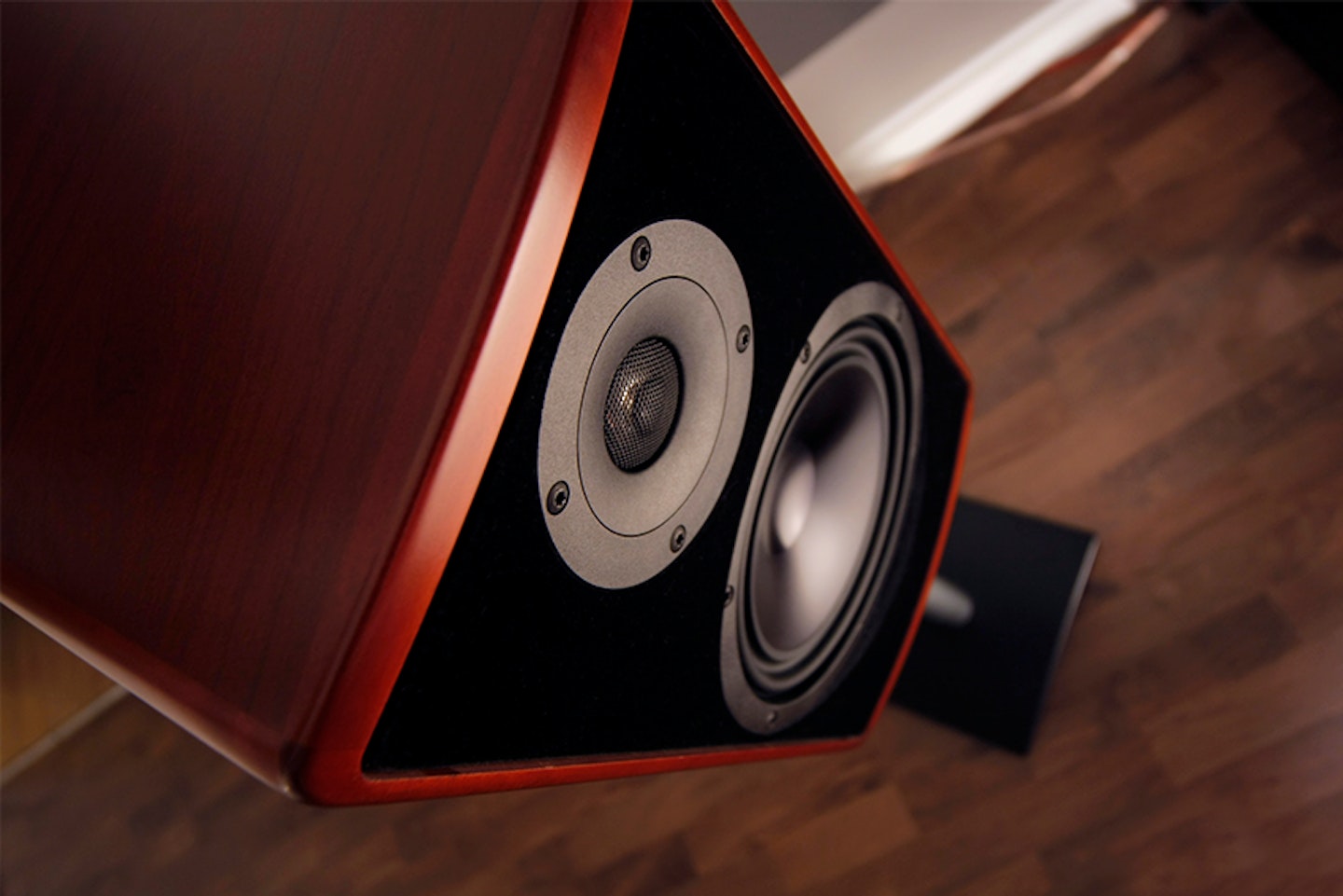
Best speakers for music in 2024: Jargon buster
Passive speakers
A passive speaker has no active power or amplifier circuitry. So, you must route your sound to them via an external amplifier. Some speakers, like the Edifier R1280T, are active. They don't require an external amplifier.
Active speakers
Likewise, an active speaker has its own power supply and amplifier function. This means that you can hook up any sound source directly to the speakers, usually via an auxiliary input connection, such as an audio jack or twin phono plugs for speakers for a record player. Because these speakers actively power themselves, they can amplify the music you pipe into them. This, of course, includes all-in-ones like Bluetooth portables and some ceiling speakers.
Power rating
Typically, as a range expressed in Watts, this is the power output through each speaker's terminals. Therefore, choosing a speaker that requires more power than your amp can deliver will result in weak, under-par sound and an over-driven amplifier. Conversely, too much power from the amp will destroy speakers that aren't built to take it.
Impedance
Impedance is measured in Ohms and tells you how much the speakers impeded or resisted the audio signal. A 20-watt speaker rated at 4 Ohm will require less power from the amplifier to overcome that impedance level. Therefore, it's crucial to match up the impedance of your speakers with that of your amplifier. You risk damaging speakers by pushing too much power onto them when there's not enough resistance.
Watt
Wattage in regard to sound output and speaker power is a measure of the strength of the signal that drives the speaker. The wattage between the speaker and traditional separate amp needs to be compatible to avoid potentially damaging both; but of course with active speakers this is all dealt with for you.
Decibels
Sound is measured in decibels (dBs). While it's an accepted measure of volume, it doesn’t correlate with wattage. Although, more wattage doesn’t necessarily mean bigger or better volume, or quality for that matter. Usually, manufacturers specify the amount of dBs that a speaker can produce with a single Watt of power at a 1-metre distance.
Drivers
A driver is a device inside any speaker, be it the best-wired headphones or bookshelf speakers, that converts electrical signals into sound. It follows that larger drivers are able to deliver a more powerful sound with greater accuracy. That said, this isn't always the case as build material quality also plays an important role.
Tweeters
A speaker is two components: a woofer and a tweeter. A tweeter is responsible for producing high-frequency sounds. They're often a dome shape and may even be independently positionable.
Woofers
A woofer is part of the speaker that produces low-frequency sounds. You'll commonly see these described by the cone's width – in inches or centimetres. This will also give you a slight indication of how much range and power they may have.
Frequency Range
In Hertz (Hz), this is a measurement of the range of sound frequencies a speaker can reproduce. Our ears can perceive 20 – 20,000 Hz, with the lower number being a lower tone and vice versa.
Why should you trust us?
At What's The Best, our mission is to provide accurate and reliable reviews, ensuring our readers receive honest and transparent information about the best technology products available. Anything less would undermine our commitment to being a trusted source of unbiased product information.
Our dedicated in-house writing team comprises experts with extensive experience and a genuine passion for technology. Collectively, we have spent decades testing and writing about tech, leveraging our expertise in all our articles, advice pieces and reviews.
We maintain complete editorial independence and do not accept payment for product reviews. Our writers have full control over their content, ensuring that products are selected based solely on the needs of our readers. While we may earn commissions or other compensation from links on our website, this never affects our product choices. These links enable us to continue offering valuable consumer advice, without compromising the integrity of our reviews.
Chris Duffill is a Tech Product Writer for What's The Best and Yours. His background includes writing, editorial, marketing, design, video production and photography.
He specialises in home entertainment and audiovisual tech, including speakers, amplifiers, turntables, streaming media players, and TVs. He is also one of our resident experts in computing (PCs, tablets, smartphones, smartwatches), DSLR photography and all kinds of digital cameras. He also writes about retro gaming, game consoles and various electronic gadgets. If it plugs in, lights up or makes a noise, he’ll write about it.
Subscribe to the What’s The Best Newsletter to keep up to date with more of the latest reviews and recommendations from the rest of the What’s The Best team.
